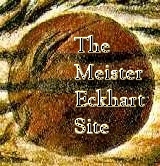|
|
||
 |
Meister Eckhart Home / Works by Meister Eckhart - Quotes / Inspired by Eckhart / Studies / The Papal Condemnation / Mail & Announcements / Links / Books |
M. LAISTNER
Knowledge of Greek in Western Europe during the earlier Middle Ages
Chapter 10 (The Study of Greek) of Laistner's, Thought & Letters in Western Europe - A.D. 500 to 900, N.Y. 1931, pp. 238-250
Page 10
An attempt has been made to appraise fairly the evidence provided by authors and manuscripts of the Carolingian Age. The conclusion to be drawn is as decisive as it is unflattering to the pretensions of some writers of that epoch. John Scotus and Anastasius were both capable of making serious errors. Nevertheless they must be put in a class by themselves as Greek scholars. Far more limited was the acquaintance with a second language of men like Sedulius, Martin of Laon, and a handful of others. Yet their purpose was serious, even if their performance fell greatly short of accurate understanding or translation. A long way behind them is the little band of those whose Greek amounted not even to an elementary knowledge of the language, but only to familiarity with the alphabet and with a sprinkling of common words or phrases. To repeat a small portion of the Greek liturgy was no more than a feat of memorization; that it was a mechanical process is suggested by the more or less phonetic transcriptions into Latin characters that still survive. To some the introduction of a Greek word in a Latin treatise or even a poem was a mark of culture and elevated style. The writer who aspired to these qualities would make the most of the few tags that he had acquired from his teachers or culled himself from some Latin author, like Jerome, or from some glossary to which he had access. This mannerism gave its user a semblance of learning to which he was not entitled. His contemporaries were sometimes misled by outward appearances. Others in more recent times have fallen into the same error, but with less excuse.[25]